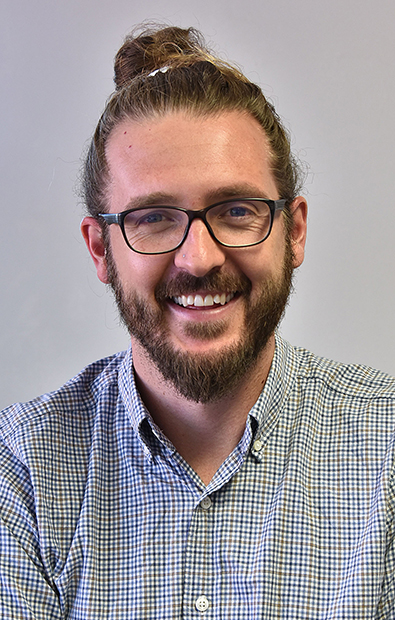Latest News Archive
Please select Category, Year, and then Month to display items
13 November 2018
Photo Moeketsi Mogotsi
 Kovsies took an active stance against sexual and gender-based violence through various campaigns in October.
Kovsies took an active stance against sexual and gender-based violence through various campaigns in October.
President Cyril Ramaphosa recently announced that South Africa will launch a national strategic plan to tackle gender-based violence (GBV) after years of lobbying by activists. Speaking at the Presidential GBV Summit, the head of state commended activists who called for a nationwide shut down in August in response to high levels of GBV and femicide in the country. He says the government is now reviewing national GBV plans and will develop a national action plan.
Activism at the UFS
One of the efforts launched by the University of the Free State’s (UFS) Gender and Sexual Equity (GSE) Office in the fight against this plague is the # RESPECTME campaign. From 11 to 26 October 2018, the university held its own 16 Days of Activism.
Geraldine Lengau of the GSE Office believes that minority groups deserve the same amount of respect as all other citizens of this country, which is the core concept of the campaign. “The Campaign is a loudhailer to say, ‘just because I am different from you’, be it gender or sexuality, it doesn’t mean that I deserve any less respect,” she highlighted.
Lengau added: “Activism will forever remain important on our campuses as it creates an environment where the community is made aware of matters that would otherwise not have mattered had they not been publicised. Also activism becomes all the more important in advancing the university’s strategic plan.”
Policies advocating against GBV
As stipulated in the UFS Sexual Harassment, Misconduct and Sexual Violence Policy the university strongly believes in the principle of human dignity that is entrenched in the Constitution of South Africa (1996) which resolves to ensure a safe working and study environment for students.
Student Affairs also led a campaign which aimed to highlight the ongoing scourge of sexual and gender-based violence, in line with the policy. “The university is working relentlessly at endorsing the aspects and characteristic traits of respect amongst all of its stakeholders in an effort to reduce the notion of gender-based violence,” said the Dean of Student Affairs, Pura Mgolombane.
Newton Fellow at UFS focuses on land and labour
2017-10-28

Dr Rory Pilossof
Photo: Charl Devenish
Dr Rory Pilossof is a senior lecturer in economics at the University of the Free State (UFS), a Postdoctoral Fellow at the International Studies Group at UFS, and a Research Fellow at the University of Kent in the UK.
He became interested in his research field when he studied land reform and land issues in Zimbabwe for his PhD at the University of Sheffield. From there, his research interests have expanded to look at other issues connected to land, such as whiteness and labour.
Dr Pilossof's study field links up with the important issue of land reform in Southern Africa due to its past colonialism and post-colonial politics of land and land ownership. These intersect with a wide range of labour issues that are pressing in the region. He has a keen interest in elite transitions and changes in economic structure in Southern Africa since the 1960s.
Dr Pilossof was nominated to the South African Young Academy of Science in 2017, and received an NRF Y1 rating during 2017. He is also a member of the Amsterdam-based International Institute for Social History’s ‘Global Collaboratory on the History of Labour Relations’. He is a participant in the Leverhulme Trust-funded initiative ‘Comparative History of Political Engagement in Western and African Societies Programme’ at the University of Sheffield.
Dr Pilossof's primary research focuses on issues of land, labour and changing social and economic structures in Zimbabwe and South Africa. He is also interested in finding alternative ways of looking at change. To this end, he has studied various newspapers and periodicals in the region.
Currently, he spends most of his research time as part of a three-year British Academy-funded Advanced Newton Fellowship into labour relations and occupational structures. In future, he wants to expand his research in the labour field by looking at labour and migration in the region over the course of the 20th century.